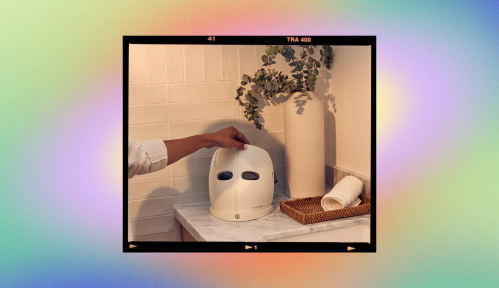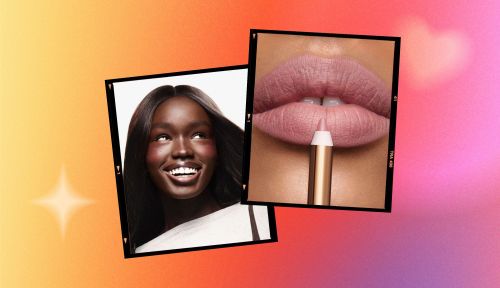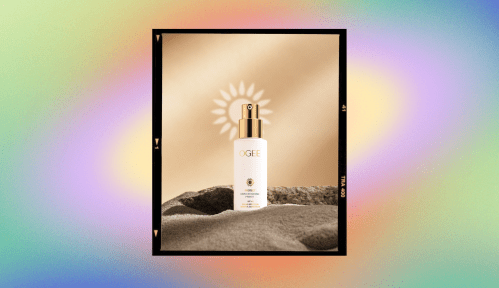Our editors independently select these products. Making a purchase through our links may earn Well+Good a commission
Having Oily Skin Isn’t a Bad Thing—Here’s How To Tell if You Should *Actually* Do Something About It
Oily skin is often viewed as problem that needs to be solved. If you've ever wondered "is it bad to have oily skin?" The answer is no.

Oily skin is often viewed as a problem that needs to be solved. But while excess oil production can lead to concerns, like acne or having a difficult time keeping makeup in place, there’s nothing inherently “bad” with having this type of complexion. In fact, oil actually helps keep your skin healthy.
Experts in This Article
board-certified dermatologist based in New York City
board-certified dermatologist in New York City
board-certified dermatologist
Jenna Menard is a makeup artist.
board-certified dermatologist specializing in medical and cosmetic dermatology
“Our skin is a barrier to the outside, and it helps maintain hydration levels and protects us from infection, bacteria, and viruses,” says Ivy Lee, MD, a board-certified dermatologist in Pasadena, California. Plus, sebum is packed with free-radical fighting vitamin E, which fends off the types of environmental damage that leads to skin aging. What’s more, those with oily skin tend to have fewer wrinkles as they get older.
Sebaceous (aka oil) glands are natural and their activity varies from person to person—hence why some people’s skin is oilier than others. Unless your oily skin is bothering you (for example, it’s causing painful pimples), there’s no medical reason to try and quell it. And while it’s ok to want to curb your oil production (say, for the sake of keeping your makeup in place), if you overdry your skin with products like astringents and toners, it won’t be able to function optimally and may even give you the opposite effect of what you want.
“Sometimes in the quest to dry out the skin and decrease the oil, people will overshoot, and that signals to our brain to make more oil, and then we’re perpetuating this vicious cycle,” says Dr. Lee.
When oily skin is problematic
1. You’re getting unwanted pimples
Overproduction of oil is often linked to acne. That’s because pimples often form when oil becomes trapped under dirt, grime, or dead skin cells. So if you’re skin is oily and you’re experiencing acne, one way to manage it is to slow down oil.
2. Your makeup won’t stay put
If you’ve ever used a cleansing balm, you know just how effective oil is at breaking down makeup. If you have oily skin, that means your makeup might not hold up throughout the day—if you can even get it to stick in the first place. You might feel like your skin is repelling the makeup and that if it does stick, it’s patchy.
3. You simply aren’t a fan of the ~glow~
Having oily skin means you tend to look shiny. Say you’re “someone who’s a little more oily and feels like they have that shine throughout the day,” says Dr. Lee. “Some people like that glow, some people don’t.”
How to manage oily skin
1. Work with your hormones
The glands that create oil and sebum have hormonal receptors on them. So “increased sebum production, or oil production, is usually hormonally driven,” says Elizabeth Kream, MD, a dermatologist in New York City. “A lot of times, if someone comes to see us to treat adult female acne, we might prescribe spironolactone, which is a pill taken by mouth that has anti-genetic properties, meaning it helps reduce the bad estrogens and testosterone that causes acne.”
If you want a non-hormonal option, you can try supplements like DIM, or diindolylmethane. It’s derived from broccoli, kale, and cauliflower and has been shown to have anti-androgenetic properties. “That anti-androgenetic property is what’s going to help decrease that hormonal component that’s driving the oil production,” says Dr. Kream.
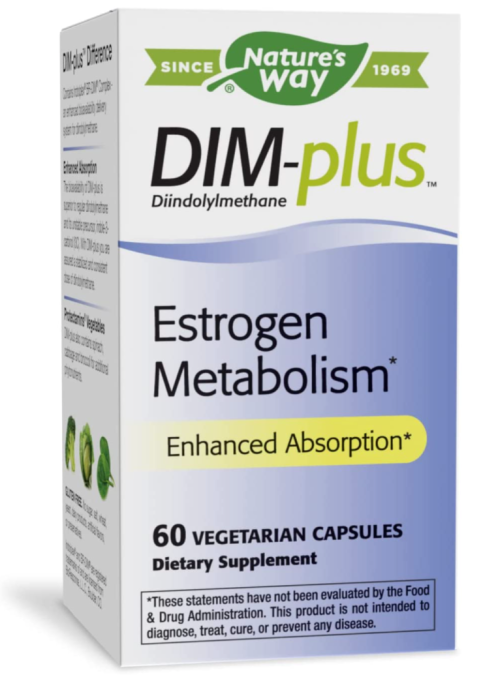
Nature's Way DIM-Plus — $17.00
2. Use skin-care products that slow oil production
One way to slow down oil production is to decrease inflammation in your skin with ingredients like retinoids and niacinamide. “Stress hormones increase oil production on the skin, so decreasing inflammation makes your skin less oily,” saysShirley Chi, MD, a board-certified dermatologist in Southern California.
Although retinoids are best known for increasing cell turnover and helping to prevent clogged pores, “they also do have some anti-inflammatory effects,” says Dr. Kream. And a small study from 2006 found that a two percent topical niacinamide product lowered sebum excretion rates over the course of four weeks. The Youth To The People Retinal + Niacinamide Youth Serum ($68) is the perfect option. It contains 0.15 percent retinal, a retinoid that works faster and better than retinol, the typical over-the-counter go-to retinoid, and 5 percent niacinamide.
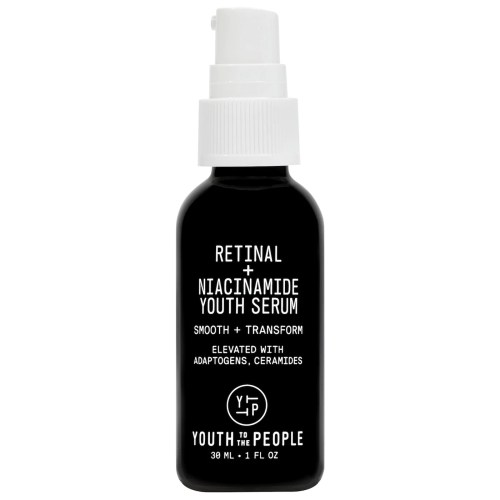
Youth To The People Retinal + Niacinamide Youth Serum — $68.00
3. Use a mattifying makeup primer
If you wear makeup, you could benefit from a mattifying primer.
“A primer can help keep your oily skin under control. There are primers that hydrate while mattifying. So, if you have oily skin, a primer does not have to be drying and you can pick a primer designed specifically for oily skin,” says makeup artist Jenna Menard. “And the best part about primers, yes they can extend foundation wear, but they can also be worn on their own almost like a clear foundation to help reduce the appearance of pores, shine, fine lines, and control oil without adding pigment on your skin.” The IT Cosmetics Your Skin But Better Makeup Primer+ ($40) is a great option. It’s oil-free, hydrating, and blurring and will hold your makeup tight.
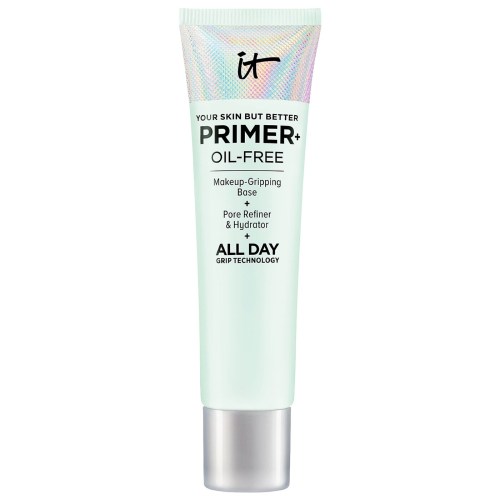
IT Cosmetics Your Skin But Better Makeup Primer+ — $40.00
How to maintain the glow
If your oil isn’t causing anything you deem an issue, you can just leave it be. “Some of my patients that used to say ‘I really don’t want to be shiny,’ now they love it. They’re like ‘I’m stopping my retinoid,'” says Dr. Lee. But letting your oily skin do its own thing doesn’t mean you can just throw your routine out the window. Here’s how to embrace it and keep it healthy.
1. Use a mild exfoliant
Just because you don’t want to stop your oil doesn’t mean you want it to build up in your pores. Keep your pores clean and clear by incorporating a mild exfoliant, like the Glytone Mild Gel Cleanser ($15). It’s made with glycolic acid and gently exfoliates, removes surface debris, and moisturizes the skin.
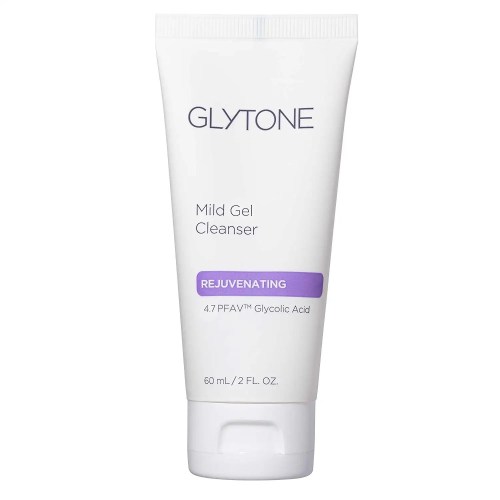
Glytone Mild Gel Cleanser — $15.00
2. Moisturize, moisturize, moisturize
Everyone should use a moisturizer, regardless of skin type. If you have oily skin and want to keep it looking dewy, steer clear of mattifying formulas and go with something that’s non-comedogenic (meaning it won’t clog your pores) and will let your oils shine through, like the La Roche-Posay Toleriane Double Repair Face Moisturizer ($20). “La Roche-Posay Double Repair is like one of my holy grail, tried-and-true skin-care products that I find that almost all of my patients are happy with,” says Elyse Love, MD, a board-certified dermatologist in NYC. “It’s one of those skin-care products that work great for oily skin and work great for dry skin.”
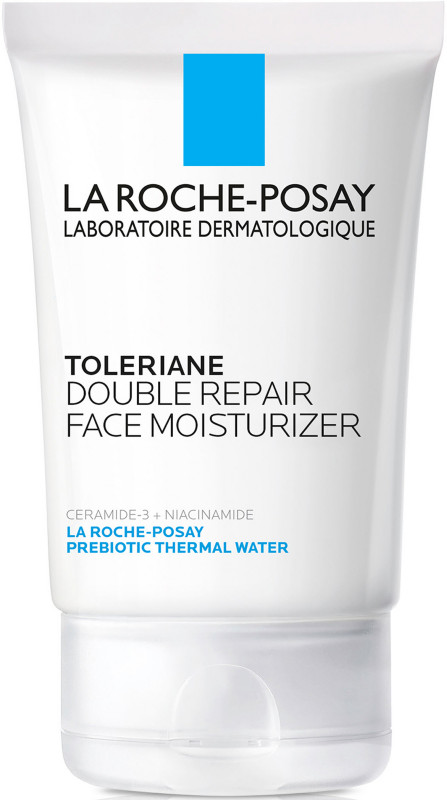
La Roche-Posay Toleriane Double Repair Face Moisturizer with Niacinamide — $20.00
3. Enjoy it!
Repeat after me: having oily skin is not a bad thing. Your relationship with your skin is yours and only yours. Dewy skin is indeed having a moment, but you should rock your skin however you want regardless of trends. If you like your oil, there’s no reason to try and “fix” it.
How to create an oily-skin-friendly routine:
Want even more beauty intel from our editors? Follow our Fineprint Instagram account for must-know tips and tricks.
Sign up for the Well+Good SHOP Newsletter
Get exclusive deals on wellness, beauty, fitness, and food products that have been hand-picked by our editors.
Got it, you've been added to our email list.

